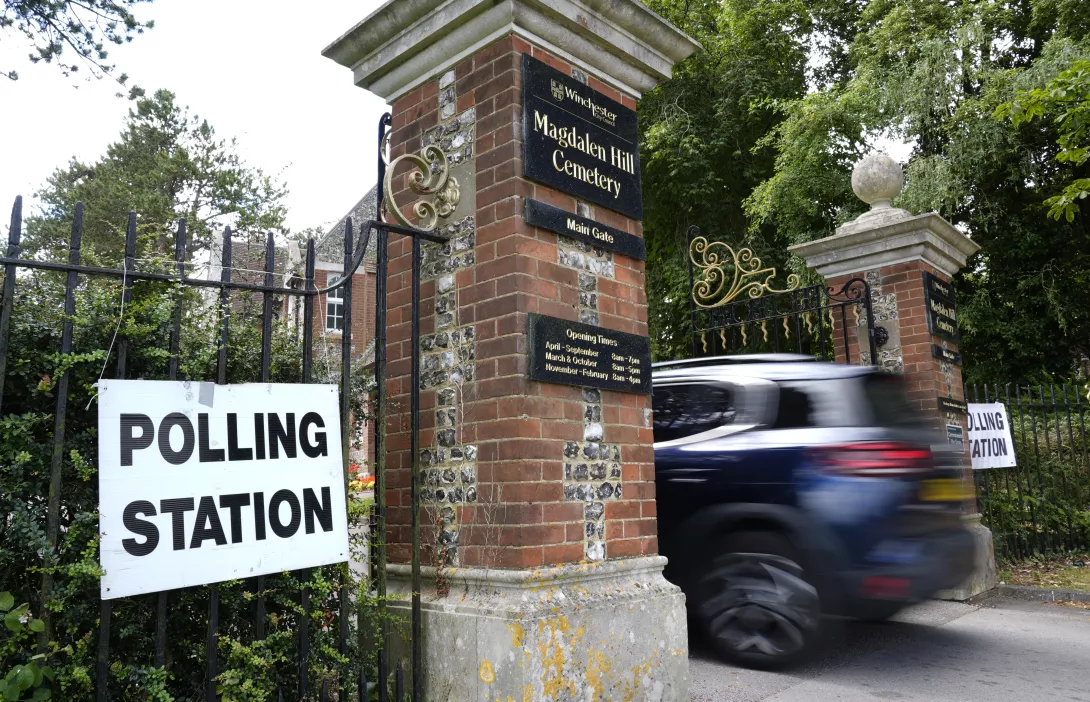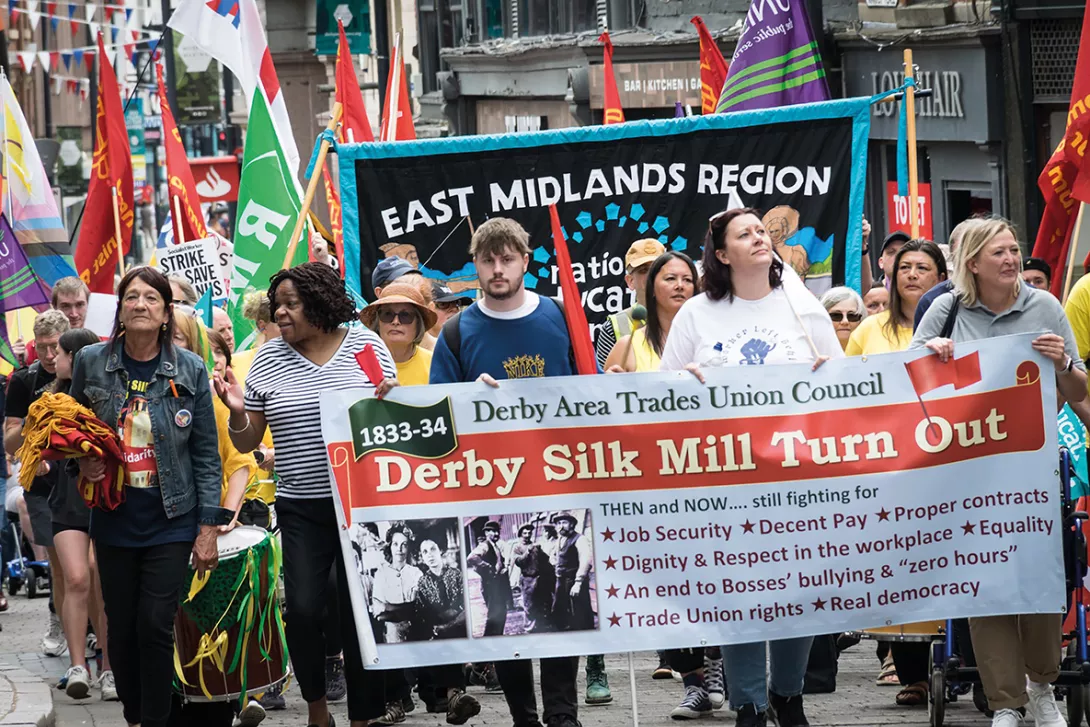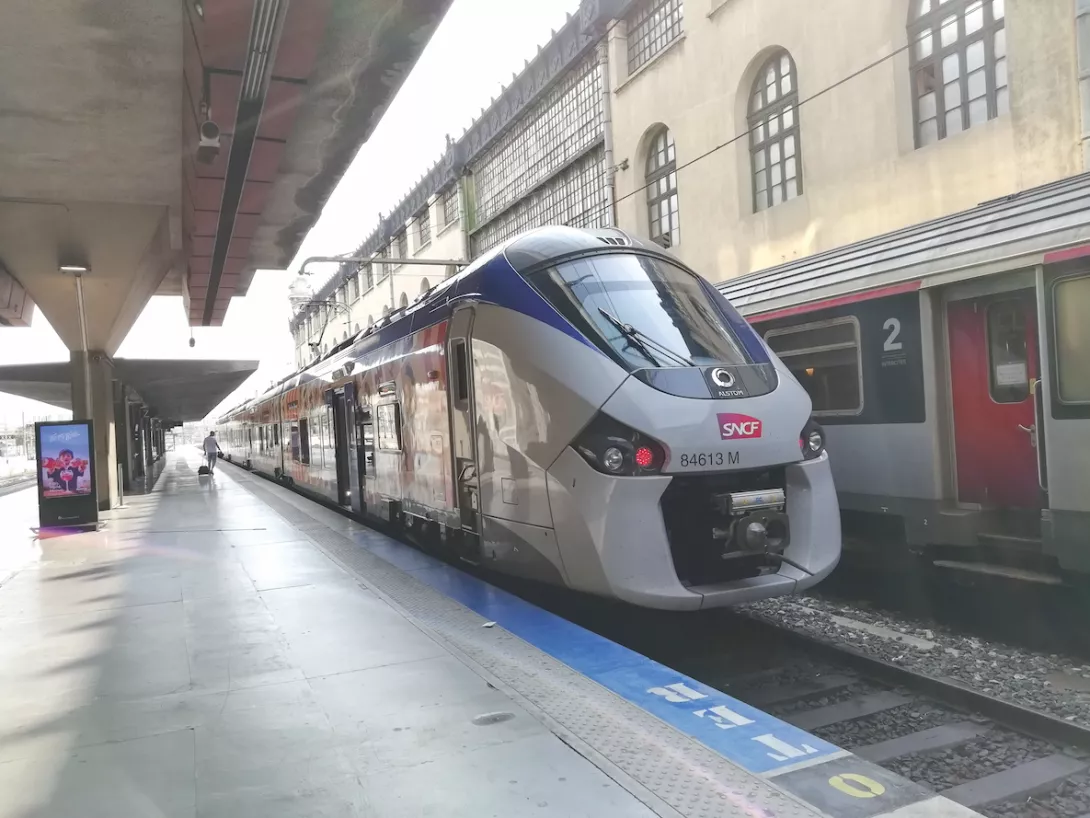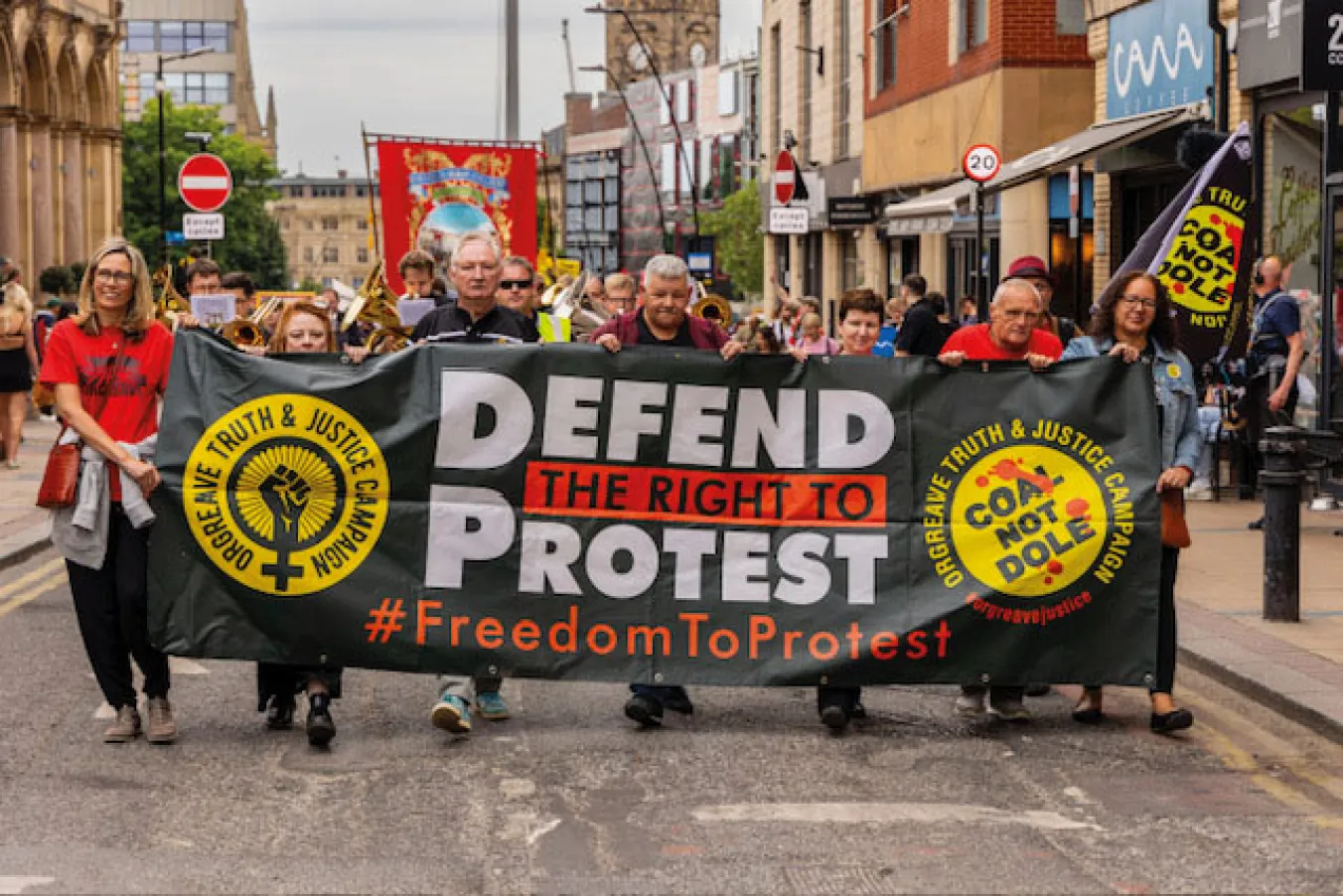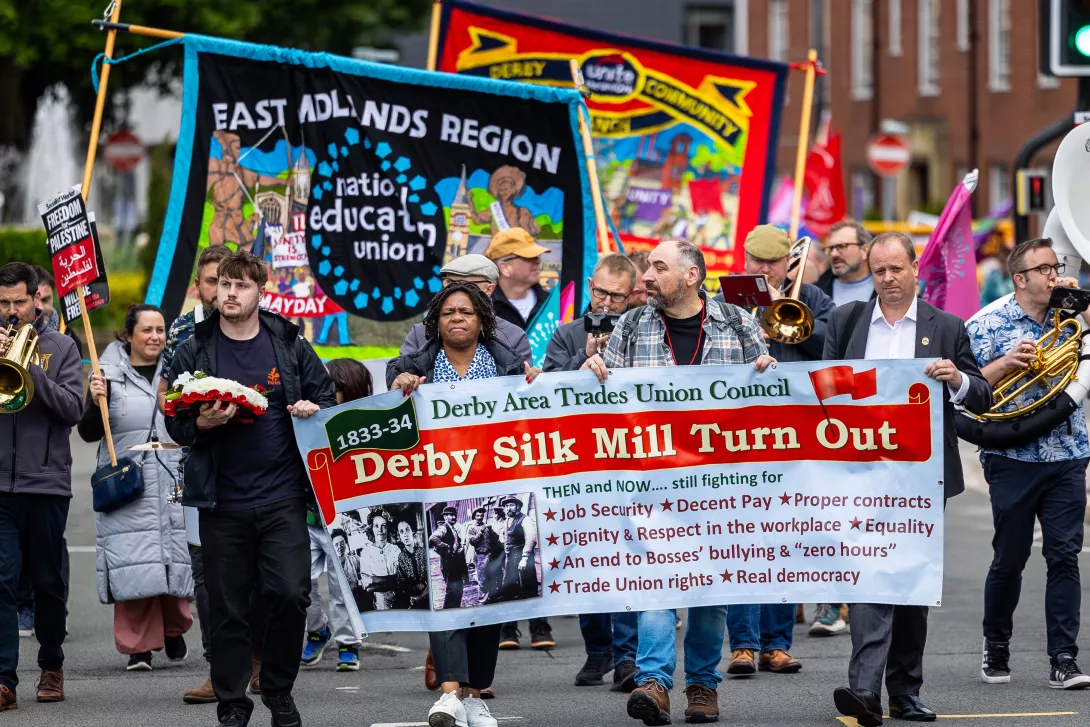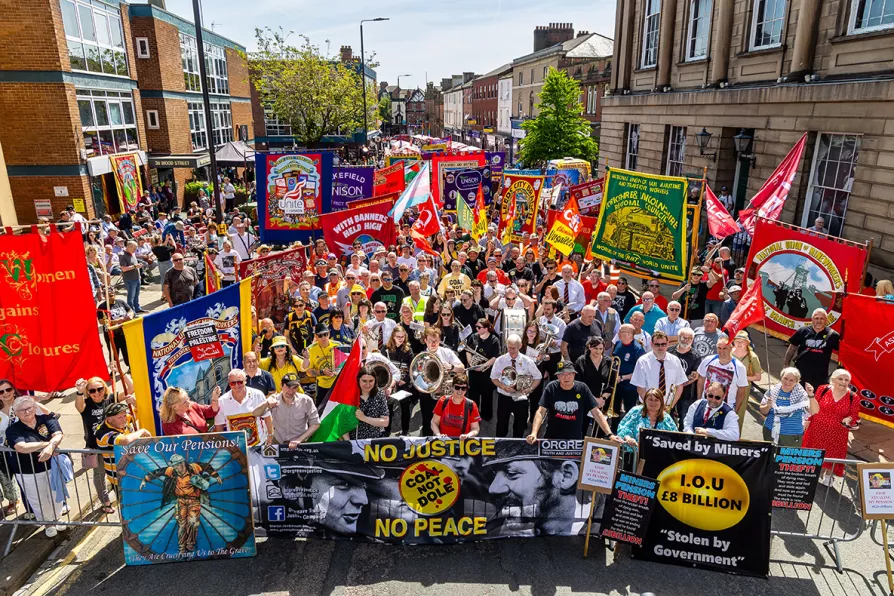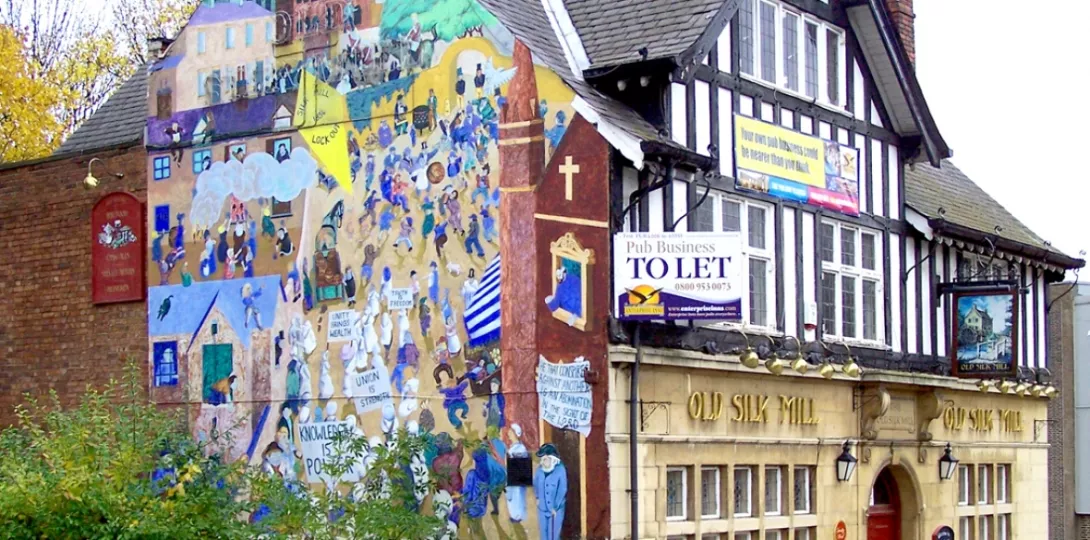
DERBY’S Silk Mill Festival on June 8 commemorates Britain’s first organised struggle of industrial workers, the 1833-34 struggle of Silk Mill and other workers — the same years as the agricultural workers’ struggle in Tolpuddle. Both fights were against pay cuts and victimisation, for trade union rights and a decent life for all — fights which continue to this day.
Organised by Derby’s Trades Union Council & People’s Assembly, and Midlands TUC, a lively march will be led through the town by Deep Down Brass, an exciting and energising local band updating the tradition of marching brass bands.
This will be followed by a People’s Festival including trade union and community campaign stalls, lots of kids’ activities, food and drink, three live bands — Sura Laynes, 5 Hills Out and Bleeding Hearts — all hosted by Derby’s renowned poet Sophie Sparham.

